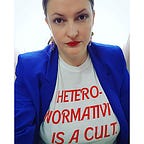Welfare Food Challenge: The Cheat
When I started this challenge, I intended to write updates about my experience with greater frequency. What I had not considered was how little energy I would have on my new diet and how that would impact my capacity to achieve this goal.
As promised, I have tracked my caloric intake over the course of the week. My caloric intake has a bit of variation depending on the day (days that include pasta are higher). But generally, my intake from this diet nets me around 900 calories a day. I’ve been supplementing my diet with the free milk that I have access to at work, drinking a cup of it each day. But beyond that — and the free halloween candy that is plentiful in our office building this week — my opportunities to get more calories are limited. Generally, as with the candy, adding calories just means increasing the white flour or sugar that I ingest on a given day. I feel shaky, hollowed out, and exhausted.
So it was of little surprise that, by Friday, I had picked up a nasty cold. This is where my cheat came in. I had promised my partner that I would modify my challenge if I got sick. My partner has supported me through bouts of illness including migraines, pneumonia, and hypothyroidism. Throwing my health into jeopardy to prove a point did not sit well with him. So I agreed to this caveat. And by Friday, I had to honour it. I cracked a tetra pack of tomato soup to soothe my throat. I felt sad for failing the challenge. But I felt sadder still knowing that this small act of self care and healing is out of reach for so many people living on social assistance. There is no wiggle room in the monthly budget. But, as we all know, life requires wiggle room. Things happen. Colds happen. And the powerlessness that comes from a position of knowing what you need to feel better but having no capacity to provide that for yourself is exceptional. To be in a place where you need to rely on social assistance is already to be profoundly vulnerable. But to rely on a system that does not meet your needs fully adds a whole other level of vulnerability, one that keeps you hanging on by a thread, one that keeps you in a constant state of hunger.
I am happy to say that I am on the mend but am not satisfied knowing how hard cold and flu season will be for everyone whose access to healthy food is severely limited by inadequate social assistance rates.
